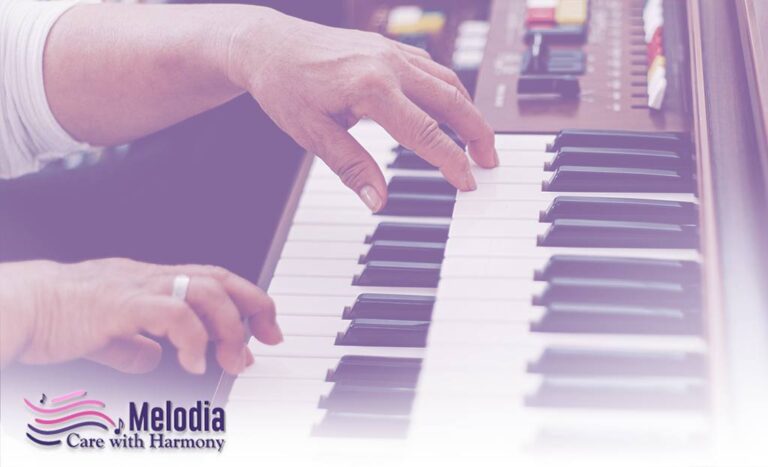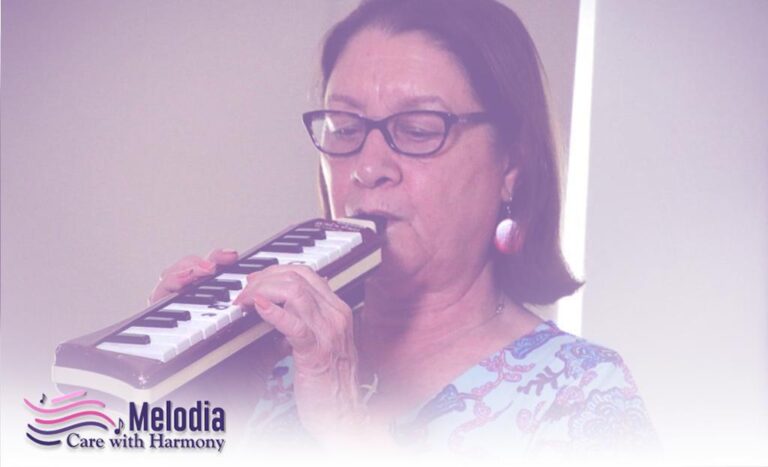Hospice Music Therapy
Have you ever felt that how a piece of single music changes your whole mood and well-being? It keeps your body feeling free from stress which has been running on your mind for a lot of time.
According to medical terms, this whole process of interconnecting the mind & body with the musical tone is known as music therapy. This therapy involves the person’s connections and responses to encourage them towards a positive mood and change their well-being for the better. Hence, music therapy can create a musical atmosphere with different instruments, dancing your feet out on your favorite dance, singing your heart out or listening to your favourite songs.
Different styles of music have a varied impact on human mindset. Through music, a person will find their mood starting to change very quickly and they can often process out their emotions as well. This can be either happiness, sadness, excitement, thoughtfulness or calmness.
Similar to listening, the art of making music has similar benefits on the human mind and body. A positive person will always create a piece of music that is soothing for the ears to listen to all the time.
Understanding The Concept Of Music Therapy
Music therapy uses specific powerful music abilities with which it improves the well-being of the human personality. It is often an alternative to different other therapies, including counselling or cognitive-behavioural therapy (CBT).
Music therapy specialists use the person’s connections and responses to encourage positive change inside the human body. This even brings an effect on the overall mindset of the person with which they think positively.
In addition, music therapy is also effective in improving confidence, boosting independence, more excellent communication skills, growth in self-awareness and much more. It is during music therapy that the live musical interactions between the person and the therapist takes place.
Improvisation is another central element of music therapy. This technique is all about making the music to the response of a mood or any theme. Thus, this can be either creating the sound of the storm by using rain sticks and drums.
How Does Music Therapy Work?

The whole idea of how the brain is affected by music is a lot complex. Every aspect of the music, such as melody, tempo and pitch, is fully processed through various brain areas.
The cerebellum is responsible for processing the rhythm and the frontal lobes are decoding the emotional signals created through music. A small portion of the right temporal lobe is helpful to understand the pitch.
The Reward center of the brain, known as the nucleus accumbens, will produce stronger physical signs of pleasure. This can be either the goosebumps which appear when you hear powerful music.
Hence, musical therapy also uses such deep physical reactions for the body, reacting towards mental health conditions.
What Are The Benefits Of Music Therapy?
There have been wide ranges of benefits of creating or listening to music which you never experience through talking therapies. Practicing and learning to create music is effective for coordination, improving memory skills, enhancing your reading capabilities, making your mathematics better and much more. It even gives you some lessons in regards to responsibility and perseverance.
By creating a powerful piece of music, it will drive a feeling of achievement in a person and this feeling will enable them to improve their self-esteem and mood.
Plus, through music therapy, a person is introduced to numerous cultures one after another. While listening to music, you are expected to start exploring the music of a different language and a different genre. This will make you curious to know about the historical background of the music right away to connect yourself with that culture course.
Nevertheless, self-expression is known to be a significant part of talking therapy. With music therapy, people can express themselves in a better scenario and in a creative way. This can turn out to be an enjoyable experience to explore some complex emotions.
To better explore complex emotions, lyrics analysis is something that holds massive importance. You start making memories through the taste of music. For instance, when you are happy you listen to calm music and you listen to dull musical tones when you are sad.
Some of the people even search for the themes or meanings within the lyrics. They do find some alternative lyrics which is applicable to their experiences and life in general.
A few of the significant benefits of music therapy are:
- Improving the self-esteem
- Reduce the anxiety
- Boost up the motivation
- Safe emotional release
- High verbalization
- Build powerful connections with the people
How Does Music Therapy Help With Anxiety & Depression?

Many studies have concluded that music therapy helps reduce the signs of anxiety and depression. This is a lot effective for people who are suffering from cancer or someone who is going into intensive care unit frequently. It has also been medically researched that music helps reduce blood pressure and the heartbeat rate. This will lead to a greater impact on the stress level of a person.
Undergoing the music therapy treatment is equally helpful for reducing anxiety symptoms in your personality. You will feel certain calmness in your personality soon after the first session. This shows that music therapy is the best approach for reducing the signs of anxiety and depression quickly.
Furthermore, music is also responsible for affecting the stress hormones in the body. This can be cortisol and adrenaline, which the body is releasing. As the hormones start to reduce, there will be a specific relief in the stress and anxiety level.
If you are into certain depression stages, then choosing to go for the music therapy treatment should be your priority. This can often be accompanied by some standard treatments of depression, such as talking therapy. By listening to fresh music, there will be a release of dopamine to make you feel good and relaxed. The release of endorphins hormones will induce happy moods and will relieve pain.
Although it might not be the proper cure for depression, it will bring some short-term results to improve mindset, well-being and mood.
Which Best Tools Are Used In The Music Therapy Room?
Few of the common and best tools which you will find in a music therapy room are:
1. Piano

Piano is known to be the most amazing and major instrument to have in any music therapy room. It will be opening a lot of doors where you can play it parallel both with client and therapy for exploring better and unique opportunities. Piano is all about showcasing your non-verbal connections in an emotional and powerful way.
2. Maracas

Maracas is one of the most easily accessible instruments which you generally find to be used in musical therapy for the adults and kids alike. They are excellent in producing a certain positive response and do not require too much efforts in producing great sound effects. It is generally used in the sessions.
3. Melodica

This instrument is available in a variety of sizes and shapes. It is basically a blowing instrument made up of metal reeds inside it. These reeds will produce a certain chord and melody. You can have this tool easily available to you, which is mobile and robust enough to use. It hence delivers a powerful voice for any client by producing strident, loud and resonant sound.
Frequently Asked Questions (FAQs)
1. Where does music therapy take place?
Few of the most common settings to imply music therapy are nursing homes, hospitals, schools, clinics, mental centres and residences with some developmental disabilities. Music therapists even visit the juvenile detention facilities, as well as schools and the private practices.
2. Is Music therapy Outpatient or Inpatient?
The whole concept of music therapy being delivered as the inpatient and outpatient is dependent on specific individual programs. Just like any of the counselling appointment, you can visit in the form of sessions during the day time. If you are admitted in the hospital or in school, the therapists will visit you themselves. Most of the musical therapies are arranged in the form of groups.
3. Do the music therapists work with children or adolescents?
Yes, they do! They can help people with the problems of behavior disorders, anxiety, mood disorders, as well as Attention-deficit/Hyperactivity Disorder (ADHD) or autism spectrum disorders (ASD). People suffering from trauma or substance abuse disorders can often get a treatment of music therapy.
4. What should you expect after this music therapy?
It is your musical therapist who will be evaluating the emerging effectiveness of music therapy sessions. They will also determine if all the goals have been met or not. You can also plan to take part in multiple sessions.
5. Which six areas are included in music therapy?
Research in the music therapy is supporting its overall effectiveness in six different areas. This includes with the psychological, emotional, as well as physical, spiritual, cognitive and social.
Bottom Line
If you think that music therapy is a cure for a mental health condition, then you are just looking at one side of the story. It is an enjoyable and effective tool which is helpful in reducing the signs of depression and anxiety.
Hence, music therapy is the accessible and the creative way with which people can express their feelings and start processing their emotions. For some people, music has a powerful effect on their well-being and mood for a longer time.
Apart from dealing with the mental health conditions, music therapy has some great benefits too. This can be providing an innovative outlet, expanding the knowledge, improving cultural awareness and to grow the cognitive skills such as memory.
You can reach us at any time by contacting us through our 24/7 online customer support chat or by calling 1-888 635-6347 (MELODI-7) & Melodia Care Hospice.
